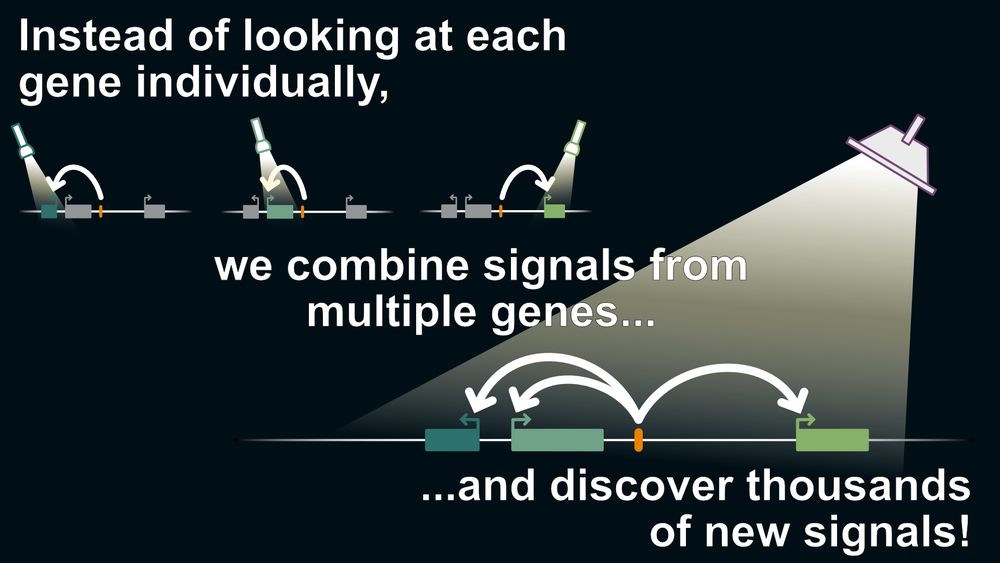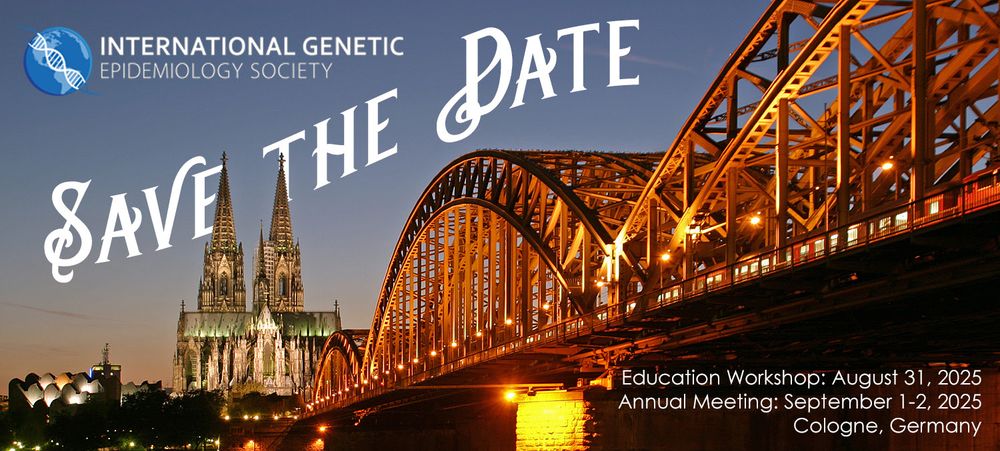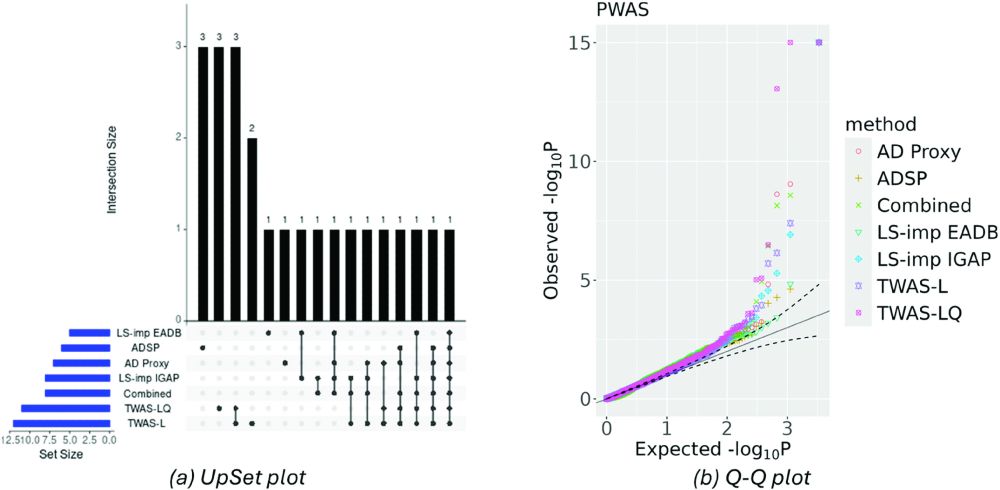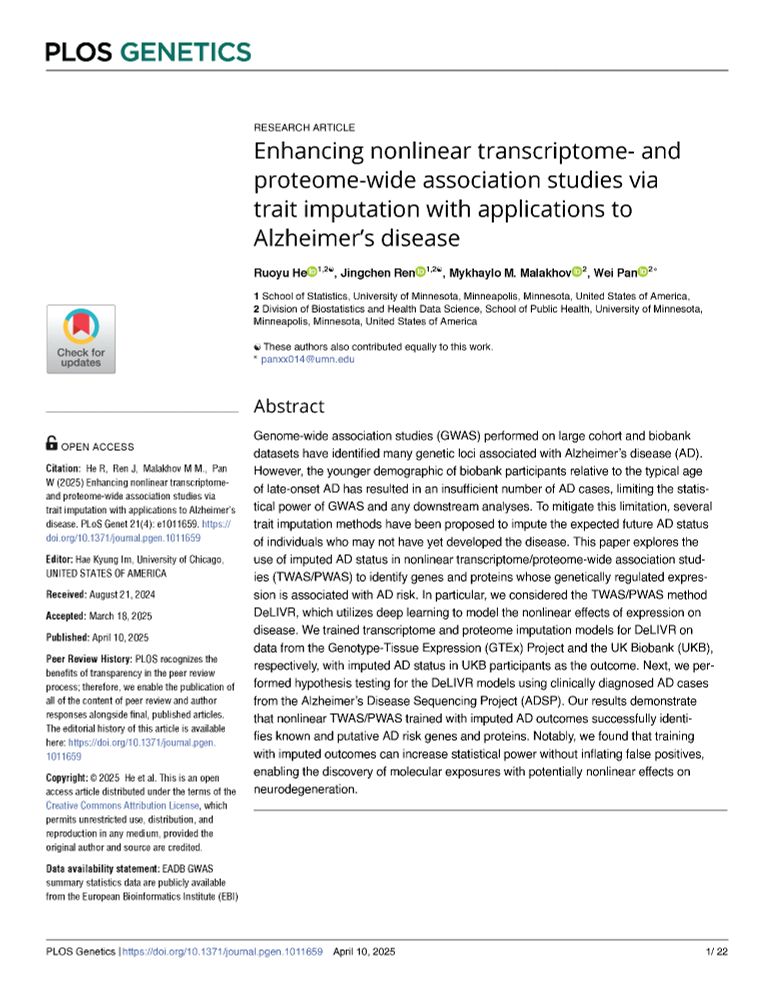Mykhaylo M. Malakhov
@mykmal.xyz
59 followers
76 following
17 posts
Genetic epidemiology postdoc at @stanford.edu
Posts
Media
Videos
Starter Packs
Mykhaylo M. Malakhov
@mykmal.xyz
· Sep 3
Reposted by Mykhaylo M. Malakhov
Reposted by Mykhaylo M. Malakhov
Mykhaylo M. Malakhov
@mykmal.xyz
· Jun 9
Mykhaylo M. Malakhov
@mykmal.xyz
· Jun 8
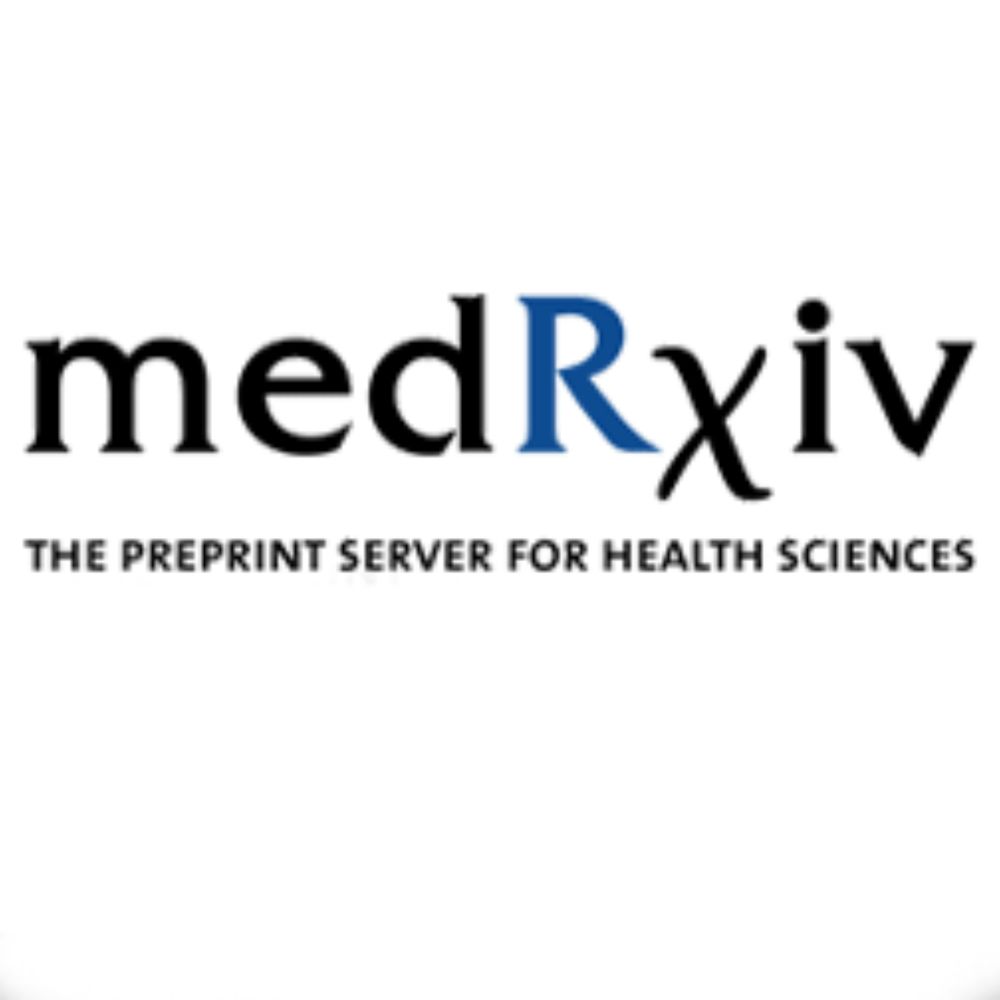
Co-expression-wide association studies link genetically regulated interactions with complex traits
Transcriptome- and proteome-wide association studies (TWAS/PWAS) have proven successful in prioritizing genes and proteins whose genetically regulated expression modulates disease risk, but they ignor...
doi.org
Reposted by Mykhaylo M. Malakhov
Reposted by Mykhaylo M. Malakhov
Mykhaylo M. Malakhov
@mykmal.xyz
· May 15
Mykhaylo M. Malakhov
@mykmal.xyz
· May 13
Mykhaylo M. Malakhov
@mykmal.xyz
· May 13
Mykhaylo M. Malakhov
@mykmal.xyz
· May 7




